Does the hot weather in Thailand affect cars?

Thailand’s hot weather can be a real test for your car. With temperatures often climbing above 40°C, the intense heat doesn’t just make you sweat; it puts your vehicle under considerable stress. This extreme weather can lead to overheating engines and tyre blowouts, making driving a potential hazard.
As the heat rises, your car’s performance can take a hit. The paintwork might fade under the relentless sun, and the interior can become unbearably hot, with temperatures inside reaching dangerous levels.
Impact of hot weather on cars in Thailand
Here’s a detailed look at how various aspects of a car are affected by Thailand’s hot weather and tips on how to mitigate these issues.
Heat’s effects on car engines
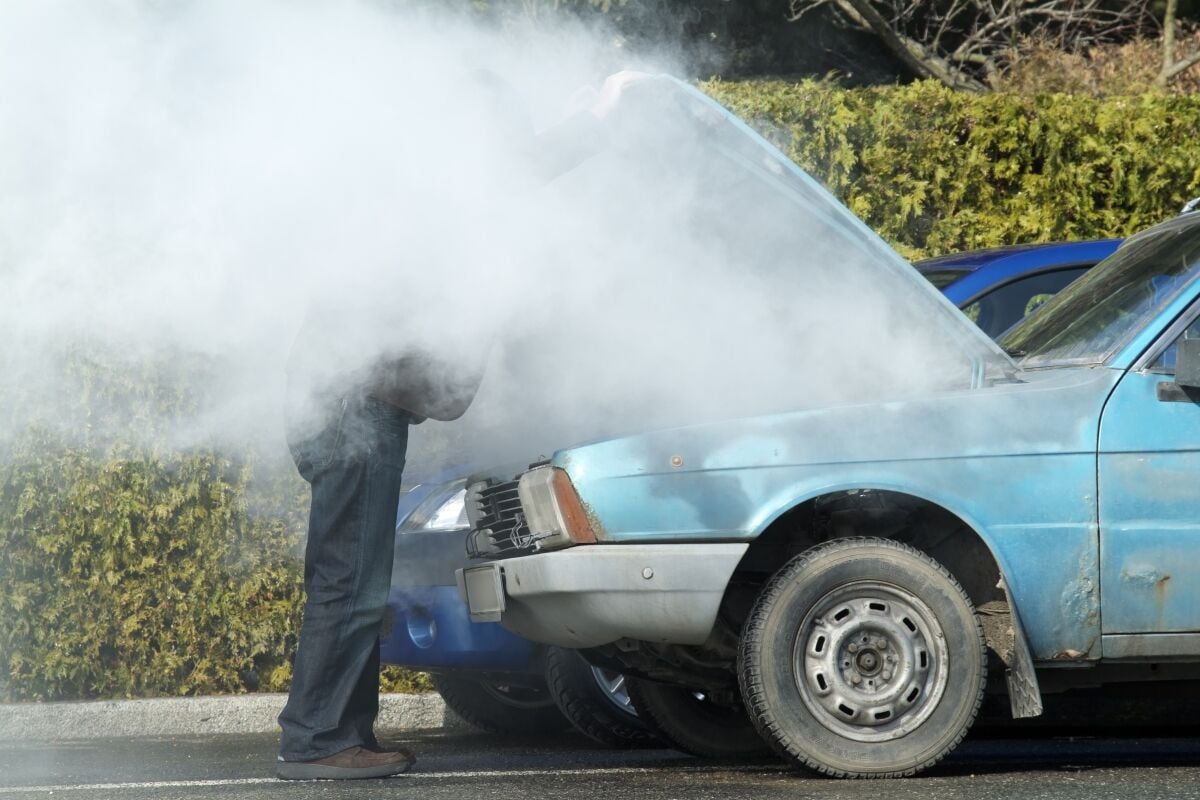
Car engines are particularly vulnerable to Thailand’s high temperatures, which can cause them to run significantly hotter and increase the likelihood of overheating. The intense heat puts considerable strain on the cooling system, requiring the radiator, coolant, hoses, and seals to work at maximum efficiency to regulate engine temperature.
This increased workload can accelerate wear on these components, making them prone to failure. The risk of engine overheating is high, especially if the cooling system is compromised, potentially leading to severe damage, such as warped engine parts, power loss, or a complete breakdown.
To avoid these issues, it is crucial to regularly maintain the cooling system. Drivers should check coolant levels frequently and have the radiator, thermostat, and cooling fan inspected to ensure everything is working correctly. Monitoring the temperature gauge, particularly during peak heat, can help detect potential issues before they lead to more significant damage.
Heat degrades batteries
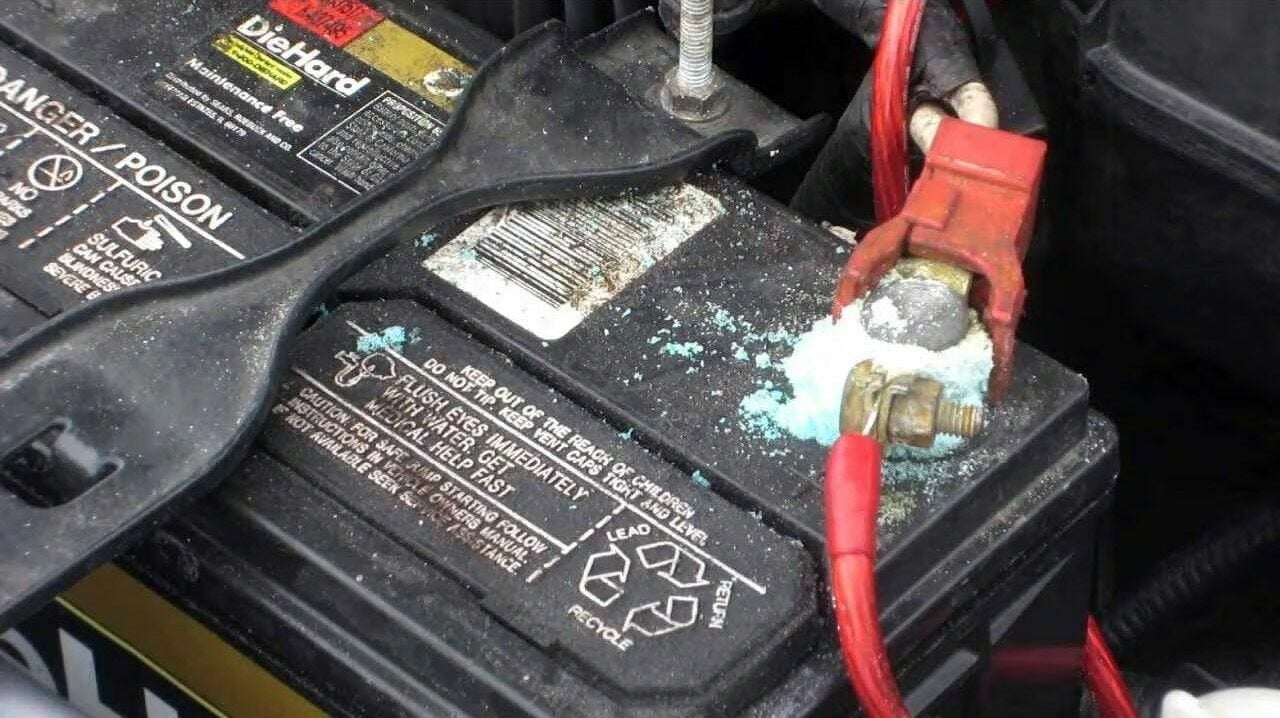
High temperatures can significantly degrade car batteries, leading to a reduction in efficiency and a shortened lifespan. In hot climates like Thailand, battery fluid often evaporates faster, reducing capacity and accelerating the battery’s degradation. This is why car batteries in such environments tend to have a shorter lifespan compared to those in cooler climates.
The charging system, including the alternator, may also experience additional stress as it struggles to maintain an optimal charge during extreme heat. This can cause slow engine cranking and difficulty starting the vehicle.
To prevent such issues, it’s essential to be vigilant for warning signs like slow engine starts or dim headlights, which may indicate battery problems. Regular maintenance, such as checking battery terminals for corrosion and ensuring fluid levels are adequate, can help extend battery life and maintain the vehicle’s performance in hot conditions.
Heat’s influence on air conditioning
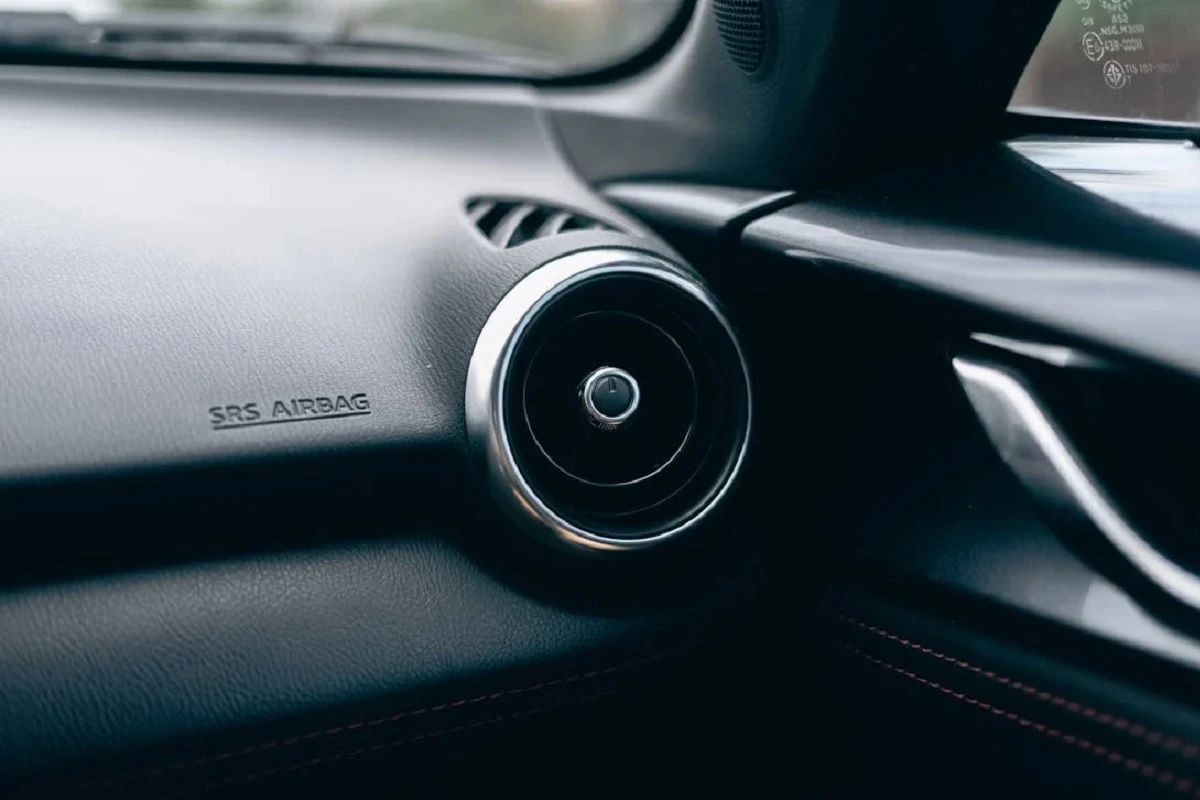
In Thailand, where temperatures consistently surpass comfortable levels, the car’s air conditioning system becomes vital for both comfort and safety. However, the intense heat places a significant burden on the AC system, demanding extra effort to maintain a cool cabin environment.
This increased workload strains the compressor and other key components, leading to accelerated wear and a higher likelihood of malfunctions. Additionally, the high temperatures affect the refrigerant’s efficiency, forcing the AC system to consume more energy to achieve desired cooling levels, which further contributes to wear on its components.
To keep the air conditioning system operating efficiently in such demanding conditions, proactive maintenance is crucial. Regularly checking refrigerant levels helps ensure that the system runs smoothly and effectively, while cleaning the AC vents maintains proper airflow, reducing stress on the system.
Scheduling routine inspections of the AC unit can also identify and address minor issues before they develop into costly repairs. By adhering to these maintenance practices, car owners in Thailand can ensure that their air conditioning system functions reliably, providing the necessary comfort and safety even under extreme heat.
Heat causing tyre pressure and degradation
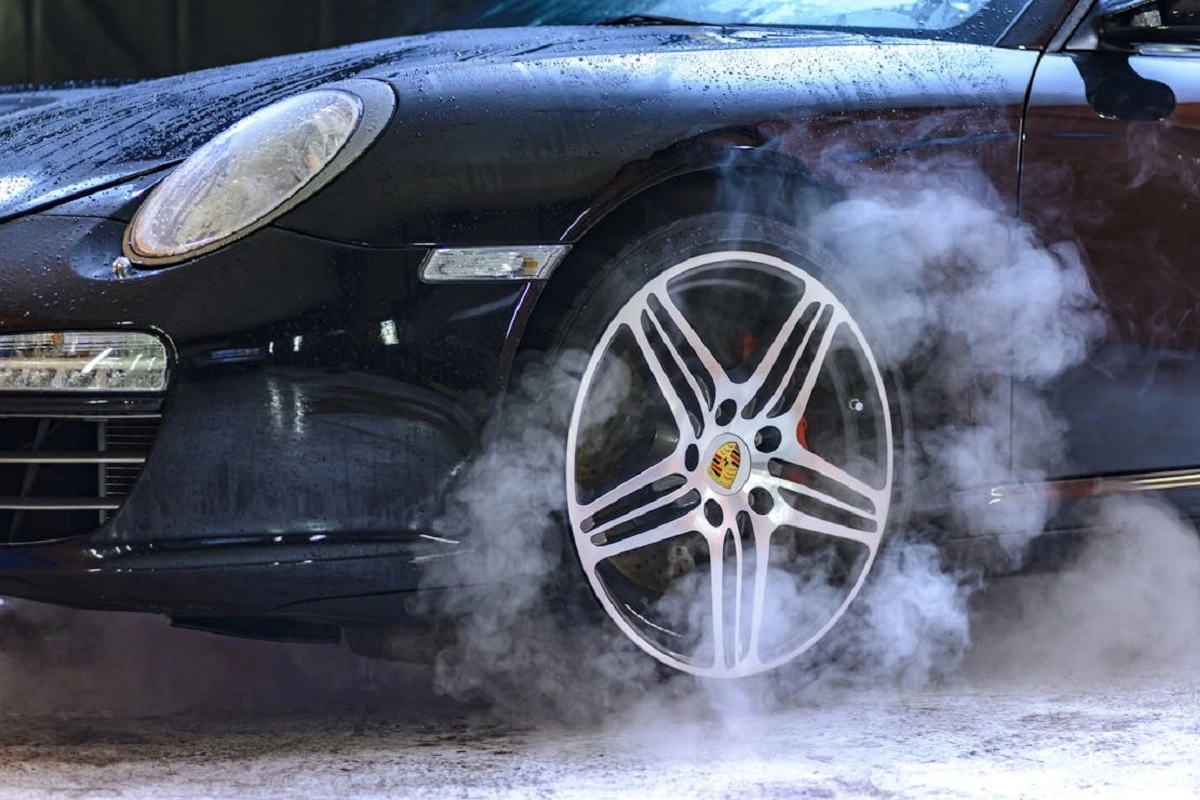
Rising temperatures significantly impact tyre health, making them particularly vulnerable to heat. When temperatures rise, the air inside tyres expands, leading to increased internal pressure. This over-inflation can cause uneven tread wear, reduced traction, and an increased risk of blowouts, compromising road safety. Additionally, high temperatures accelerate tyre wear, degrading the rubber more rapidly. This can result in cracking, bulging, and weakening of the tyre structure, particularly during extended drives.
| Temperature (°C) | Tyre Pressure Increase (PSI) |
|---|---|
| 20°C | +2 PSI |
| 30°C | +4 PSI |
| 40°C | +6 PSI |
| 50°C | +8 PSI |
*In Thailand, you will commonly encounter temperatures ranging between 28°C on a cooler day and 30°C to 40°C on most days of the year. The humidity will also play a factor in the degradation fo your care too.
As shown in the table, the rise in temperature leads to a proportional increase in tyre pressure. Overinflated tyres not only make your ride bumpier but also increase the risk of tyre damage, which can be dangerous.
To maintain safety, it’s crucial to routinely check tyre pressure, ideally when tyres are cold, as this provides a more accurate reading. Regular inspections of the tread and sidewalls for any signs of wear are also recommended. Tyre rotation, following manufacturer guidelines, helps distribute wear evenly and prolongs tyre life. Opting for heat-resistant tyres specifically designed for tropical climates can further enhance durability and ensure a safer driving experience under hot conditions.
Heat making interior materials deteriorate quickly
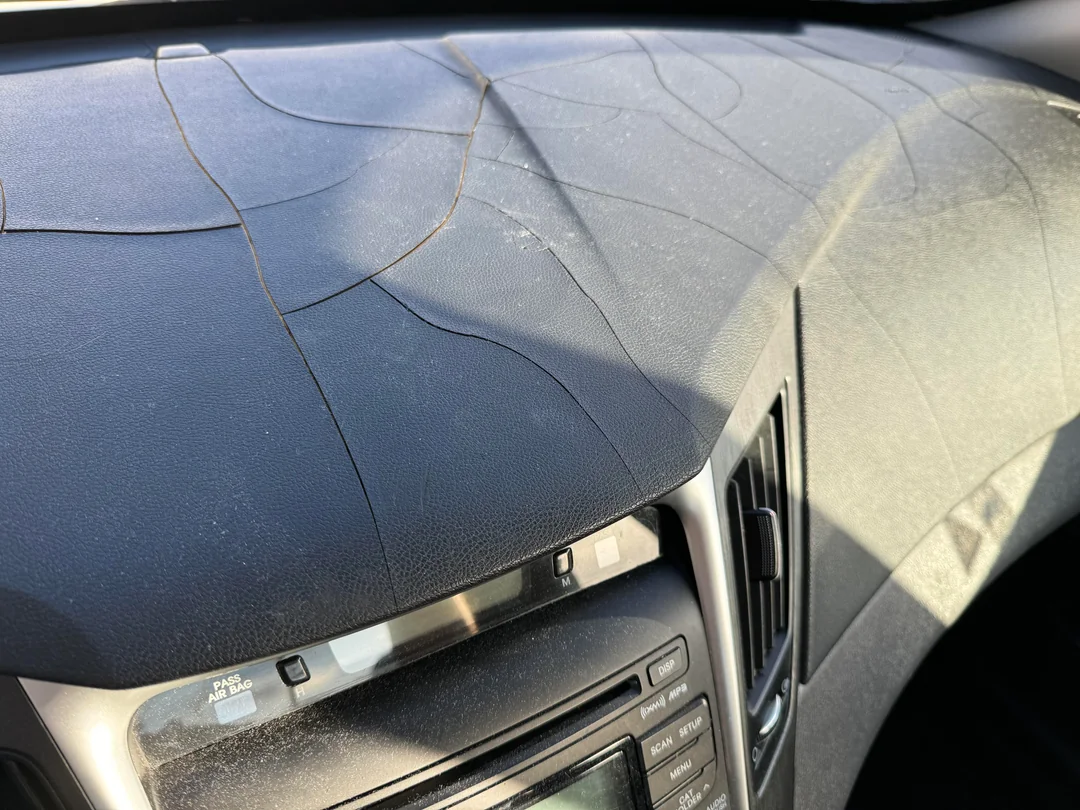
The intense UV radiation in Thailand poses a significant risk to car interiors, with materials such as upholstery, dashboards, and trims vulnerable to fading and cracking. Prolonged exposure to sunlight can cause fabrics to lose colour and lead to cracks in plastic or leather components.
Vinyl and leather are particularly at risk, often losing their lustre and durability over time. This deterioration not only affects the car’s appearance but also reduces its resale value. To protect against these effects, car owners can take several measures.
Using sunshades when parking outdoors helps block UV rays and protect the interior. Conditioning treatments for leather and plastic parts are also beneficial in preventing drying and cracking. Additionally, window tints can be an effective solution to reduce the level of sunlight entering the car, providing further protection and helping to maintain the overall condition of the vehicle’s interior.
Tips for keeping your car cool when parked outdoors
Maintaining your car effectively in Thailand’s hot weather is crucial to ensure longevity and safety, and implementing certain strategies helps mitigate the adverse effects of extreme heat.
Routine check-ups for hot and humid conditions
Thailand’s hot weather affects car components like engines and fluids. Regular checks ensure your car stays in peak condition.
| Maintenance Item | Details |
|---|---|
| Fluid levels | Check and top up coolant, brake fluid, and engine oil frequently. Heat causes faster evaporation, risking component damage. |
| Air filters | Dusty country roads clog air filters. Clean or replace them regularly to maintain engine efficiency. |
| Sun protection | Use sunshades to shield the dashboard and seats from intense sun. This reduces interior temperature, protecting materials from UV damage. |
These strategies help navigate Thailand’s climatic challenges, ensuring longevity and reliability for your car.
By understanding the specific challenges posed by extreme temperatures, you can implement effective strategies to protect your car. Regular inspections and maintenance of critical components like the cooling system, tyres, and air conditioning are vital.
Additionally, adopting protective measures such as shaded parking and sun protection for interiors will help preserve your vehicle’s condition. Preparing for seasonal changes ensures your car remains reliable and safe throughout the year. Embrace these practices to enhance your driving experience and safeguard your investment in Thailand’s demanding weather conditions.
FAQs about the hot weather in Thailand affecting cars
Does hot weather affect my car's fuel efficiency?
Yes, hot weather can negatively affect fuel efficiency. When it’s extremely hot, your engine and cooling systems work harder, and the increased use of air conditioning can put additional strain on your car’s fuel consumption. Keeping the AC on a moderate setting and maintaining your car regularly can help mitigate this effect.
Will the hot weather cause my car's paint to fade?
Prolonged exposure to Thailand's intense sun can cause your car's paint to fade or become dull over time. UV radiation can break down the paint’s top layer, especially if the car is parked outside without shade. Applying a protective wax coat and using a car cover when parked outside can help protect the paint.
How can I keep my car's interior from overheating in Thai weather?
To keep your car’s interior cool, use a windshield sunshade, park in shaded areas when possible, and crack the windows slightly to allow for air circulation. Tinted windows can also reduce the temperature inside your car, making it more comfortable to drive.
Will frequent use of air conditioning damage my car?
Using the air conditioning frequently is common in Thailand’s hot climate, but it does place additional strain on the car's engine and fuel consumption. It’s unlikely to damage the car if the AC system is well-maintained. Regular servicing will ensure that the AC stays efficient without causing harm to other engine components.
Are brakes affected by Thailand's hot weather?
Yes, the extreme heat can cause your brake fluid to degrade more quickly, potentially affecting brake performance. Hot temperatures can also cause brake pads to wear out faster. It's advisable to have your brakes checked regularly, especially before and after peak summer months.
































